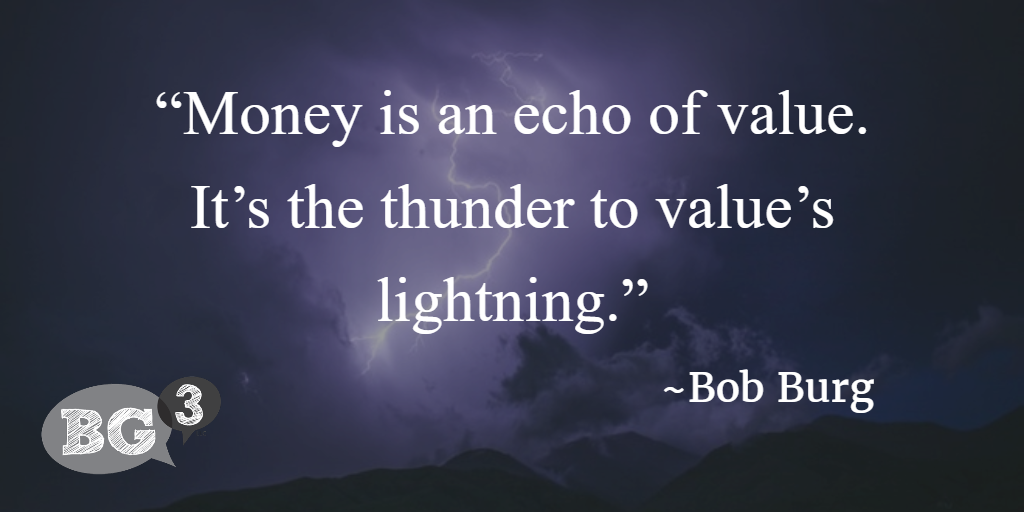If you’ve been in business for long, you’ve heard that the key to being successful is to provide value to your audience. Even when there are dozens of competitors in your market, you can still set yourself apart by the value that you bring to your consumer. The question is, however, how exactly do you add value or be of service to others. Understanding what “value” is can be tricky because it is a fine line between self-promotion and simply being helpful.
The Difference is in the Details
To demonstrate, allow me to share a real-life example from the last month with you.
As a new member to a local networking organization, my business profile was shared in the group’s monthly newsletter. A couple of the members took the time to send me correspondence to welcome me to the group. Reaching out to new members of a group that you belong to is an excellent way to show value…if done right.
Here’s what I received:
Letter #1: A hand-written greeting on a personal notecard. The envelope was hand-addressed and hand-stamped. The note welcomed me to the group, thanked me for joining and mentioned the new contacts, friends and business partners ready to help my business succeed. The signature was that of the sender. Inside, a pad of post-it notes branded with the company’s logo and a business card that held the photo of the sender were included.
Letter #2: A hand-written greeting on a company notecard. The envelope was hand-addressed and hand-stamped. The note welcomed me to the group, congratulated me on joining, and mentioned that they looked forward to seeing me at future gatherings. The signature was that of the company’s “team”.
Letter #3: A business-size envelope containing a typed business letter. The address on the envelope was typed, and the postage was metered. The first paragraph of the letter welcomed me to the group, congratulated me on joining, and wished me continued success. The following two paragraphs told me about their industry and the experience of their company. The letter closed, by offering me the opportunity to talk with someone at their company if I am interested. The letter was signed by the President of the company. Inside, a brochure detailing their services was provided which included a few photos, one of which could be of the person who sent the letter (but I’m not sure.)
Is there value being shared?
So let’s compare these letters that I received. You’ll see that the difference is all in the details.
They all were sent with the same intent of welcoming me to the organization and for me to become aware of their business.
The first letter excited me from the time I found it in my mailbox. The envelope clearly contained a personal note. The envelope was thicker than normal, and the information was hand-written on the outside. As I opened it up, I was greeted by a friendly and personal note card and the warm message. My thoughts became, “Oh, that’s nice. I look forward to meeting this person soon.”
The second letter again was hand-written, however being that I know the owners of this company, the signature of the “team” was not very authentic. My thought was, “That’s nice. They must have their assistant go through and send these.”
The third letter turned me off from the start. I’m surprised that I even opened it. I don’t often take the time to open unsolicited mail from companies that I don’t know. I read the first paragraph to understand what it was and why I was receiving it, but then skipped the rest when I noticed that they were trying to “sell” me on their firm. My thought was, “Oh, they just want my business. What a waste of their time and effort to send this.”

What about you?
Think about an interaction that you recently had with someone new. Which of these three examples reflect the approach you took when meeting them.
1. Were you focused on the other person to learn more about them and their business and how to could help?
2. Were you going through the motions, but not entirely putting yourself out there?
3. Were you more focused on meeting your quota?
So, how can you be of value and service to others?
Here are a few tips to keep in mind.
Make it personal and authentic. Allow others to get to know the “real” you.
Keep the focus on the recipient. Offer to help in a way that is not entirely related to your business.
Discover what is important to the other person and find ways to support or assist them with it.
Make a suggestion after listening to them talk about something on which they are working. Offer to make an introduction that can help them progress in their project.
If you read an article, and it resonates that it could be helpful for one of your colleagues, forward it to them. I’ve done this for clients and colleagues when I’ve read about their competitors in the market or opportunities that they could take advantage.
Offer to help them, but be specific on ways that you can help. For example, offer to meet up at an event so you can introduce them to others that you know. Or, offer to make an introduction but first, ask them who they’re trying to meet.
When you start to listen and truly get to know your audience as individuals, you will see many opportunities to offer value. And often, it won’t be something directly related to your business.

authored by Bob Burg. In the book, he explains the Five Laws of Stratospheric Success.
I reference the Go-Giver in just about every one of my presentations and classes. It is such a fundamental way of doing business. (And, it is a handy concept to keep in mind as you are pulling together your social media strategy.)
For a brief overview of the Five Laws, take a couple minutes to watch this video.
You can hear from Bob on Hal Elrod’s podcast #129, titled BEING A GO-GIVER | AN INTERVIEW WITH BOB BURG. On the show, Bob and Hal discuss that giving in this context simply means constantly and consistently providing value to others and understanding that not only is it a nice way to live life and do business, but it’s also a very financially profitable way as well.
Final Thoughts
Be confident in the products and services your business provides, but be even more confident in the value that YOU bring to a relationship. That’s how word of mouth referrals happen. People want a good product or service, but even more, they want to know that they’ll be taken care of by someone who cares.







